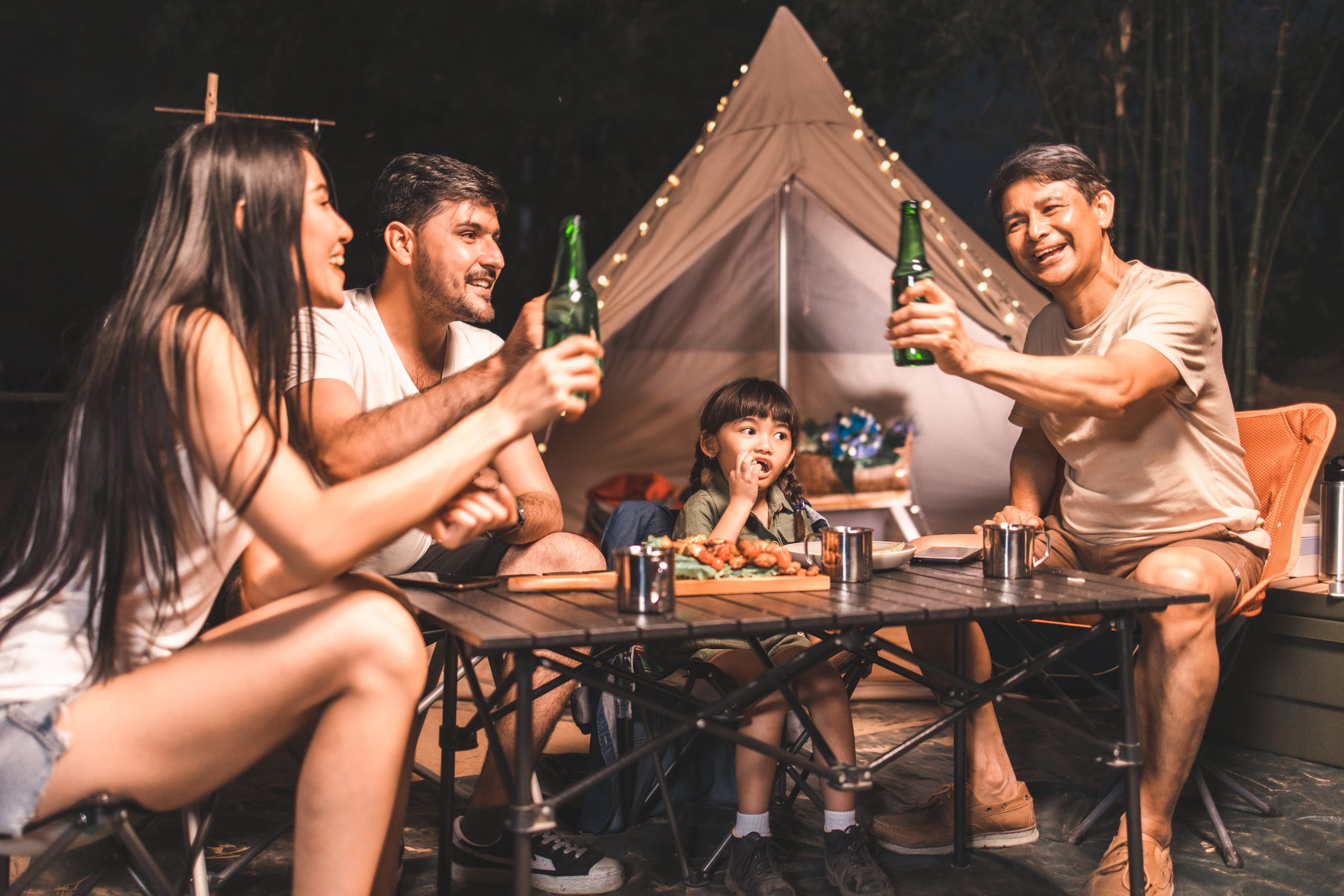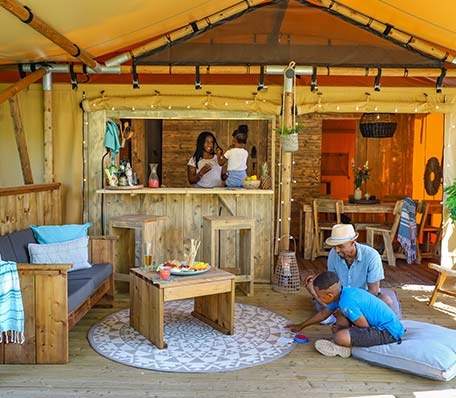Spending a week in the great outdoors can be an amazing adventure?or a living nightmare. Usually, a good or bad camping experience comes down to just one factor: what you packed (or didn't pack) for the trip. Having the essential camping items in your backpack can mean the difference between a restful vacation among the trees and a ride to the nearest emergency room. Whether you're a first-time camper or a seasoned survivalist, don't leave home without the items our readers say are must-haves for a nature outing.

1. TENT
Even if you prefer slumbering under the stars, you should always have a tent or other emergency shelter on hand just in case. Otherwise, a midnight deluge, freak snowstorm or heavy dew is sure to leave you drenched, miserable and at risk of hypothermia. A tent can shield you and your gear from high winds as well. Whether you opt for the best two person tent or a larger cabin-style tent, make sure you bring along all of its necessary accessories: rope, tent poles, stakes and a rain fly.
2. SLEEPING BAG
Resting on a bed of moss and leaves may sound like fun, but it won't keep you warm when the sun goes down. Temperatures can drop significantly at nightfall, sometimes 20 degrees or more. Keep in mind, too, that many insects are most active at night and may chance upon your unswaddled body. Going without a sleeping bag risks an uncomfortable night's sleep at best, exposure at worst. And if you've ever tried to go camping with your kids, you know without a kid's sleeping bag, they'll toss and turn all night.
3. WATER BOTTLE
Water is essential for survival in the great outdoors, and the further off the beaten path you go, the more quickly it seems to run out. The last thing any camper wants is to be stuck without a fresh supply of H2O, especially since drinking from a pond or lake can cause serious illness due to bacteria. Even if the wilderness you're heading into is just a few feet from your car, carry a day's supply of the wet stuff in a camelbak or other large container. Then, keep a filter or water purification tablets on hand in case you have to refill from a nearby stream.
4. FIRE STARTER
Camping isn't camping without a warm, crackling campfire, so you'll want the tools to get one started quickly. Campers can start fires with a flint and steel, matches, a cigarette lighter or a magnesium fire starter. If you opt for matches, make sure they're waterproof. It's not a bad idea to pack two fire starters in case one fails. Take along a little kindling as well, like dry bark or strips of newspaper, in a waterproof container. Finding dry kindling when you need it can be a challenge in the outdoors.
5. FIRST AID KIT
It's unlikely you'll experience a life-threatening injury while camping, but even a long day of hiking can result in blisters that require bandaging. Small cuts and scrapes, too, can quickly become infected if left untreated, so keep bandages and antiseptic on hand. Your first aid kit should include other necessities as well: scissors, adhesive, gauze, soap, a CPR mouth barrier and an emergency whistle. Be sure to toss in bottles of sunscreen and insect repellent as well. Sunburn and bug bites can end your trip as quickly as any laceration.
6. POCKET KNIFE
The pocket knife is the ultimate multipurpose tool of the outdoors. A knife can be used to trim a rope, cut fishing line, dice bait, slice cheese or sausage, open a tightly sealed package, sharpen a stick, deal with tangled vines, tighten a screw or skin a small animal. Without a knife, such tasks become nearly to outright impossible. If you leave your knife at home, expect to feel frustrated–often.
7. MAP AND COMPASS (OR A CHARGED GPS)
If your camping itinerary calls for hiking in remote areas, don't go without a map and compass or GPS. Constant changes in the sun's position can make forest landmarks seem unfamiliar, causing hikers to become disoriented. Unprepared campers have occasionally wandered the woods for days before getting rescued or finding their way back to camp. Getting lost or stranded in a wooded area, especially with a limited supply of water, is no joke. Even if your kids just want to walk down to the nearest creek from your campsite, make sure they have a way to return safely.
8. WEATHER-APPROPRIATE CLOTHING AND RAIN GEAR
Camping means having only a few changes of clothes available, so it's important to keep them dry. Walking around in damp clothes is not only unpleasant, it can be dangerous in cooler climes where hypothermia is a concern. Also, wet gear is heavy gear, which can make hauling a backpack uncomfortable and difficult. Choose a lightweight, waterproof rain jacket that will accommodate multiple layers of clothing. If it won't cover your backpack as well, consider picking up an additional rain bag to protect your gear.
9. FLASHLIGHT, LANTERN OR HEAD LAMP
A campfire may be nice and bright, but only for about six feet in any direction. If you need to locate an item within your tent or visit the latrine during the night, a portable, battery-powered light is invaluable. Many campers tout headlamps as the best option because of their hands-free functionality.
10. TOILET PAPER
Hardcore survivalists may view toilet paper as an unnecessary luxury in the outdoors, but many campers swear to its necessity. Bark and leaves make poor substitutes for latrine duty in both comfort and hygiene, and a chapped backside can make sitting painful. Also, campgrounds with bathroom facilities have been known to run out of paper on occasion. If you're camping in the deep woods and concerned about the environmental impact of using toilet paper, purchase some that's biodegradable or take a refuse bag for disposal.

